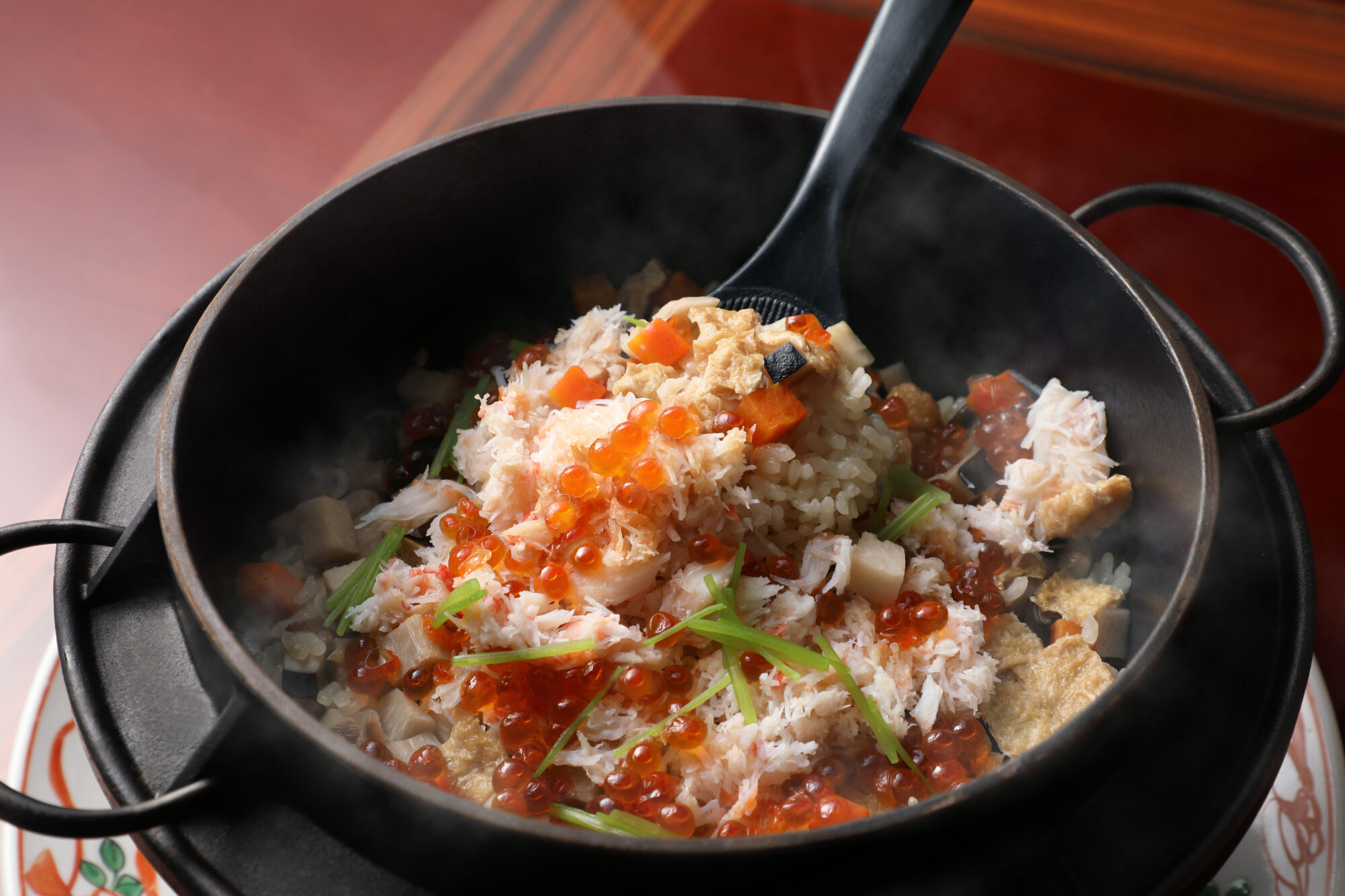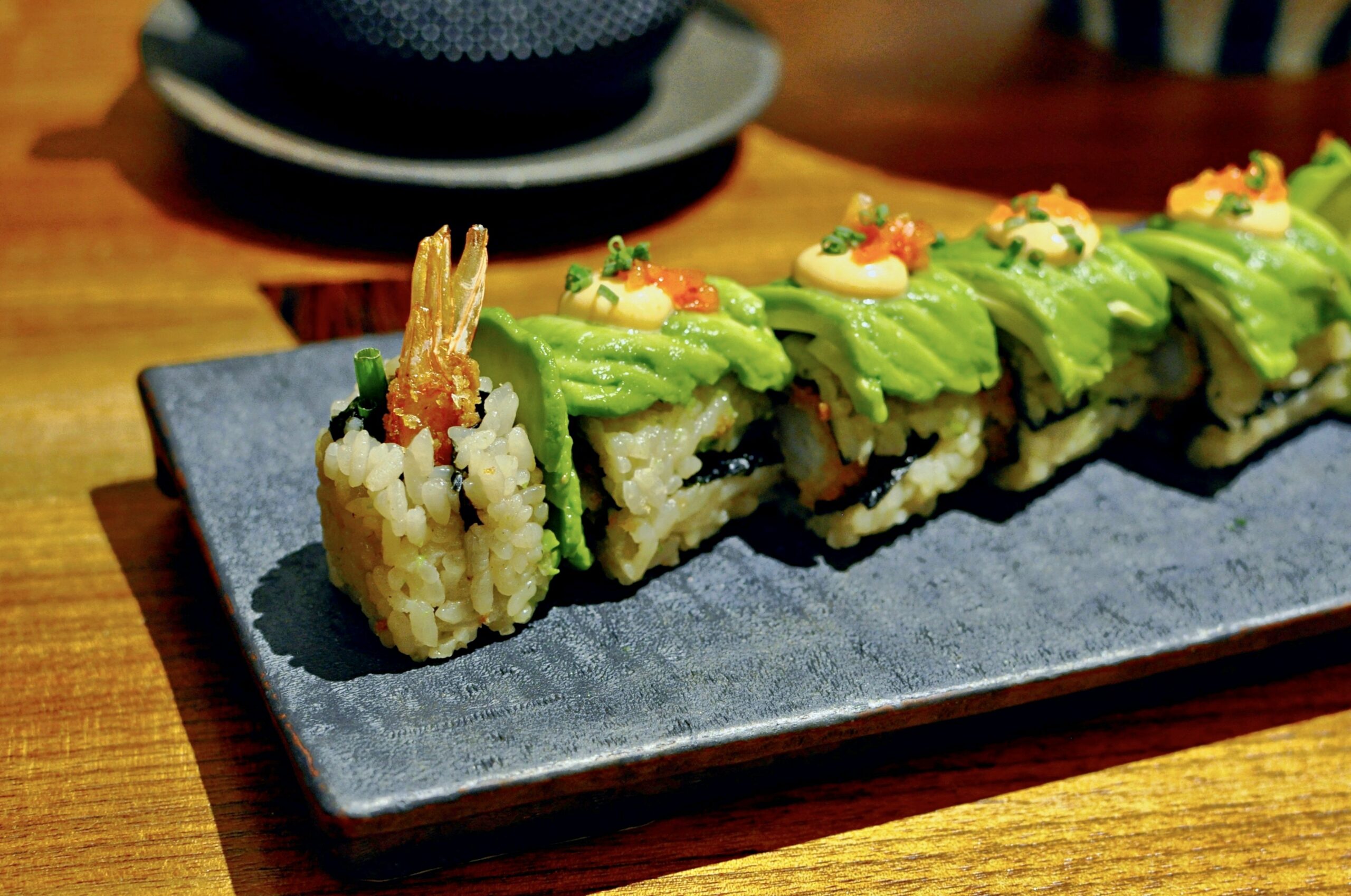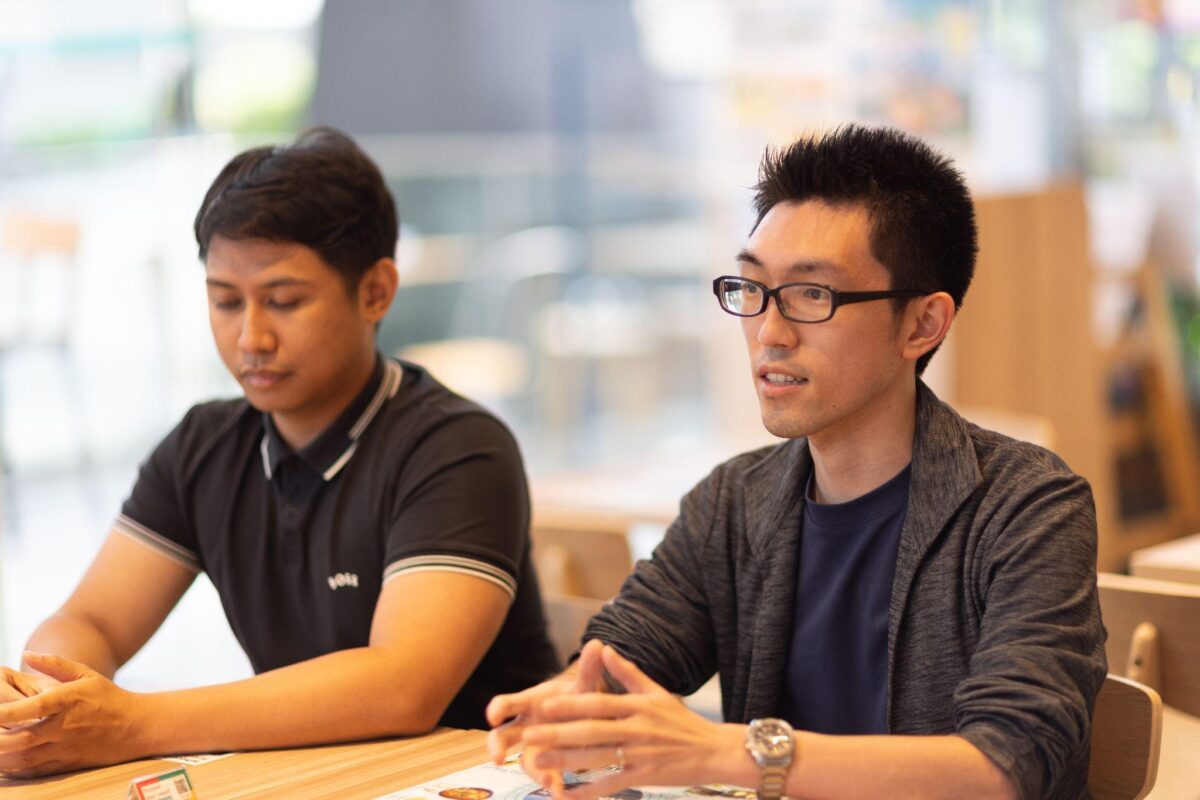
What is the concept of JAPAN RAIL CAFE?
JAPAN RAIL CAFE opened in 2016 and is operated by East Japan Railway Company with the purpose of promoting Japanese culture and delivering news for travel to Japan. The cafe organizes monthly events collaborating with the regional prefectural offices in Japan to deliver local travel news and specialty products, such as sake. The shop is equipped with a projector and is spacious enough to accommodate for various events and gatherings. It is a travel-focused communication platform serving as a space for experiencing Japanese culture alongside the cuisine.
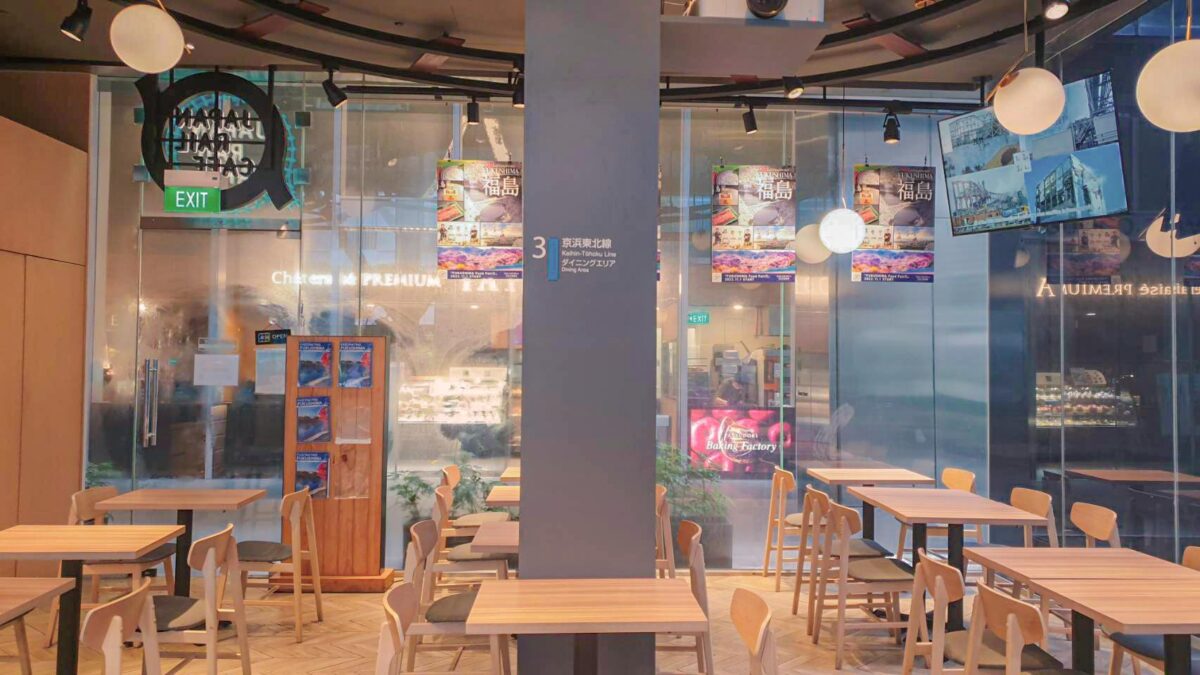
Please tell us about your visions and goals.
Our mission is to not only serve delicious food, but to deliver multifaceted experiences to the Singaporean people to promote Japanese culture, thereby functioning as more than just a cafe. We believe that sparking interest for Japan will encourage people to travel to and see the country for themselves, ultimately promoting deeper ties with Singapore. We strive to deliver our food and services at reasonable prices in order to welcome a wide range of guests.
Our Message: Japanese-Grown Rice Is a Staple of Japanese Culture
Why do you use Japanese-grown rice?
We use Japanese-grown rice in order to deliver authenticity. Our signature dishes are curry rice and the Hafu Hafu Rice, which includes both curry and hashed beef stew on a single plate. The JAPAN RAIL CAFE Plate, composed of 3 handmade onigiris, saba (mackerel), and tamagoyaki (rolled omelet), is also popular. All these dishes are very common in Japan. Since our dishes are made to be enjoyed with Japanese-grown rice, using any other variety would greatly compromise their taste.
As a communication platform, we see it as our duty to convey that Japanese-grown rice is a staple of Japanese culture. That is why we only use Japanese-grown rice.
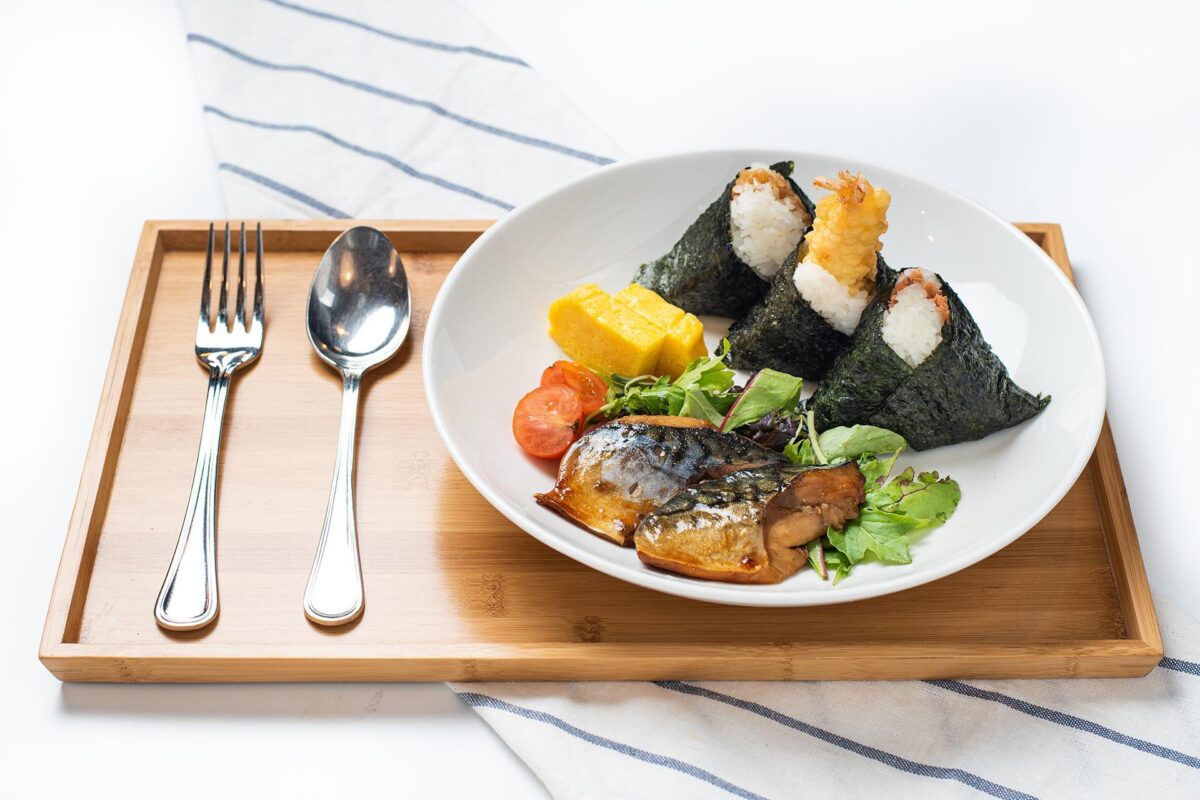
Which brands of Japanese-grown rice do you use?
We currently use rice grown in the Miyagi prefecture. Miyagi-grown rice is known for its consistent quality and flavor. There is little fluctuation in its flavor and texture throughout the year, so we can rely on always being able to obtain the same taste. It is thanks to this reliability that our guests can always enjoy Japanese-grown rice and that we have been able to expand our menu in addition to improving quality.
We also only serve freshly cooked rice so our guests can enjoy it in the best condition. Thanks to water in Singapore being soft, we can prepare the rice in the same way as in Japan.

Please tell us about your upcoming plans.
We currently mainly serve dishes using rice, like donburi and full set meals. We are planning to continue to serve dishes focusing on rice in our upcoming collaboration menus. In December, we are planning a collaboration with Ibaraki prefecture, in which we will serve new dishes using seafood. We do not yet have any specific plans for 2025, but we expect Japanese-grown rice to always be a staple in any collaboration menu.
JAPAN RAIL CAFE is the only cafe in Singapore focusing on travel. It is a place where guests can always enjoy authentic Japanese cuisine using Japanese-grown rice. It also functions as a communication platform for delivering travel news and promoting Japanese culture. The special menus and collaborations with regional prefectural offices help to bring the spotlight to all corners of Japan.
While overseas Japanese restaurants tend to be upscale and somewhat intimidating, JAPAN RAIL CAFE strives to deliver its food at reasonable prices in a casual environment. Their services help to introduce the taste of Japanese-grown rice to a wide range of guests, which we expect would lead to a growing interest for Japanese culture.
JAPAN RAIL CAFE plays a vital role as the bridge between Singapore and Japan, fostering interest for travelling to Japan.
Tips for Cooking Japanese-Grown Rice in Singapore
Japanese-grown rice can be enjoyed in Singapore in the same fashion as in Japan. Start by adequately washing the rice to remove excess bran. This is especially important for unmasking the delicate flavor of Japanese-grown rice and fully appreciating its taste. After washing, soak the rice in water for 30 minutes to 1 hour. This is to make sure the rice has enough time to absorb the water, which is essential for a light and fluffy texture. Tap water in Singapore is appropriate for drinking, thus is adequate to be used for cooking rice. There is no need to use bottled water. Keep in mind that it is very important to cook rice in the optimal timeframe to bring out the best taste.
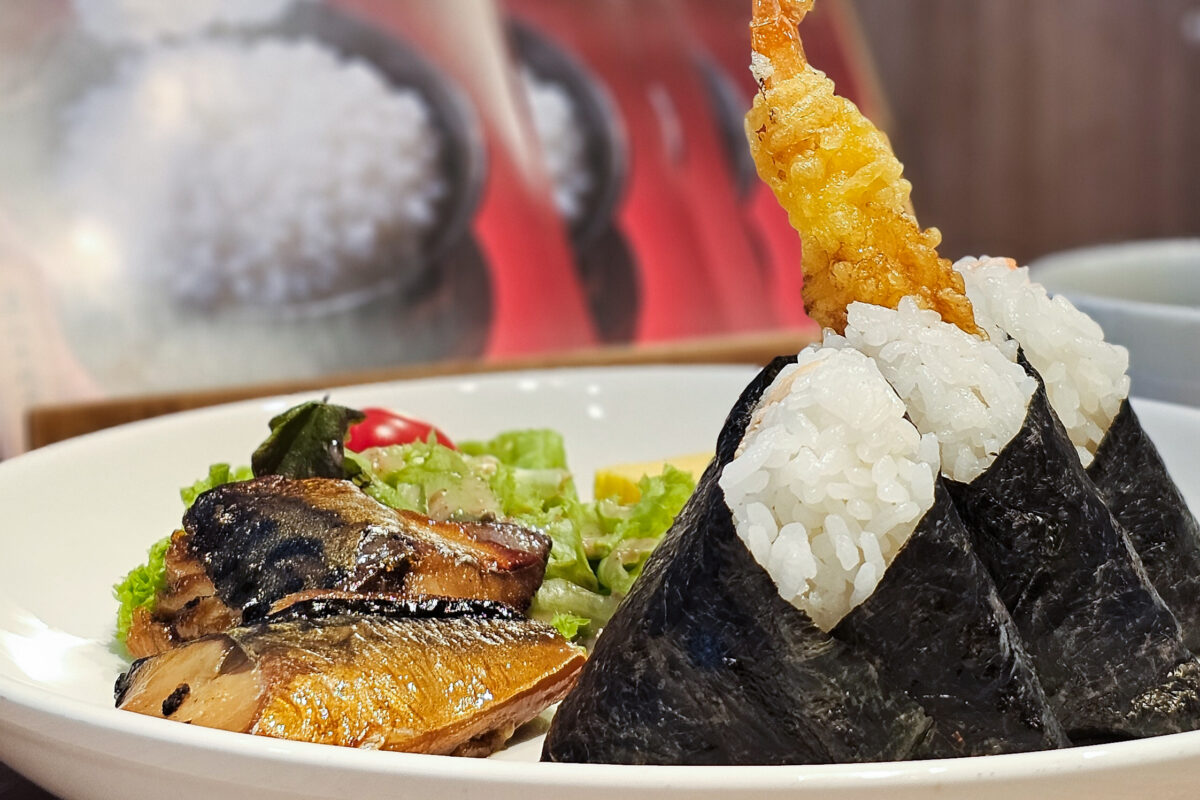
Tips for Enjoying Japanese-Grown Rice in Singapore
The texture and sweetness that is distinctive of Japanese-grown rice may not go well with certain local dishes, such as chicken rice, but there are some cuisines that have great compatibility. Economy rice, in which various dishes are accompanied by white rice, is one such style of cuisine. In this style, the chewy texture of Japanese-grown rice enhances the flavor of the various dishes, thus better satisfying your appetite. This is especially so for such dishes using fish and those with simple flavorings, such as stews and eggs. By using Japanese-grown rice in dishes such as donburi, it can be enjoyed in the household.




